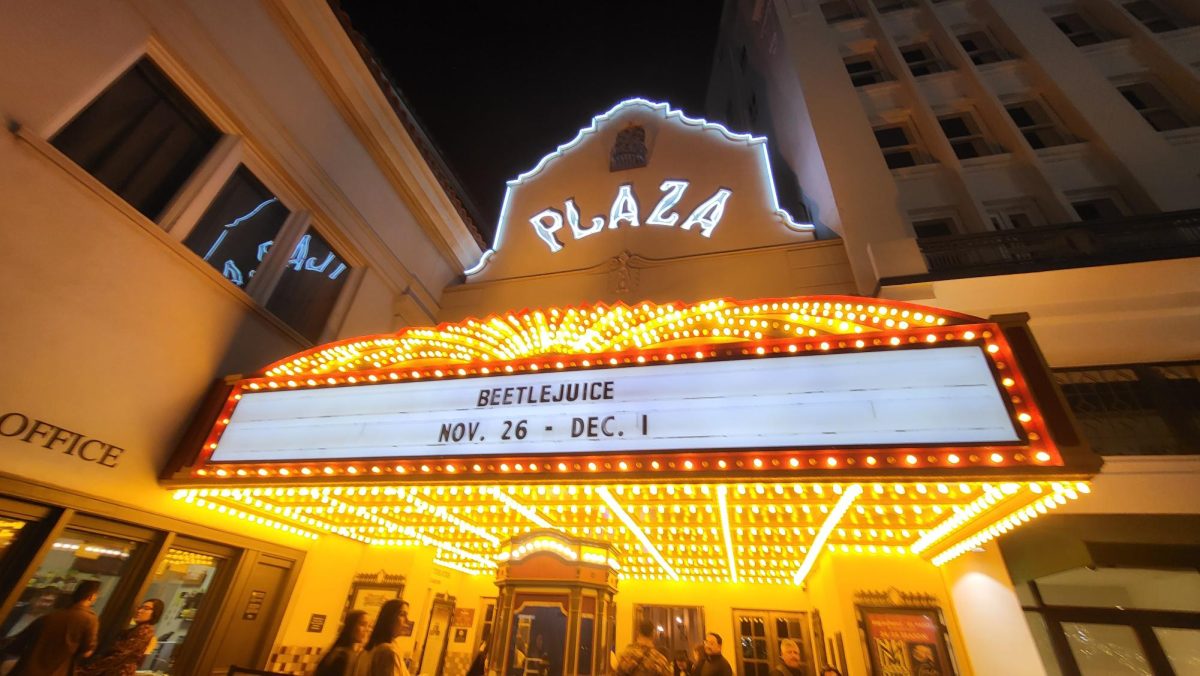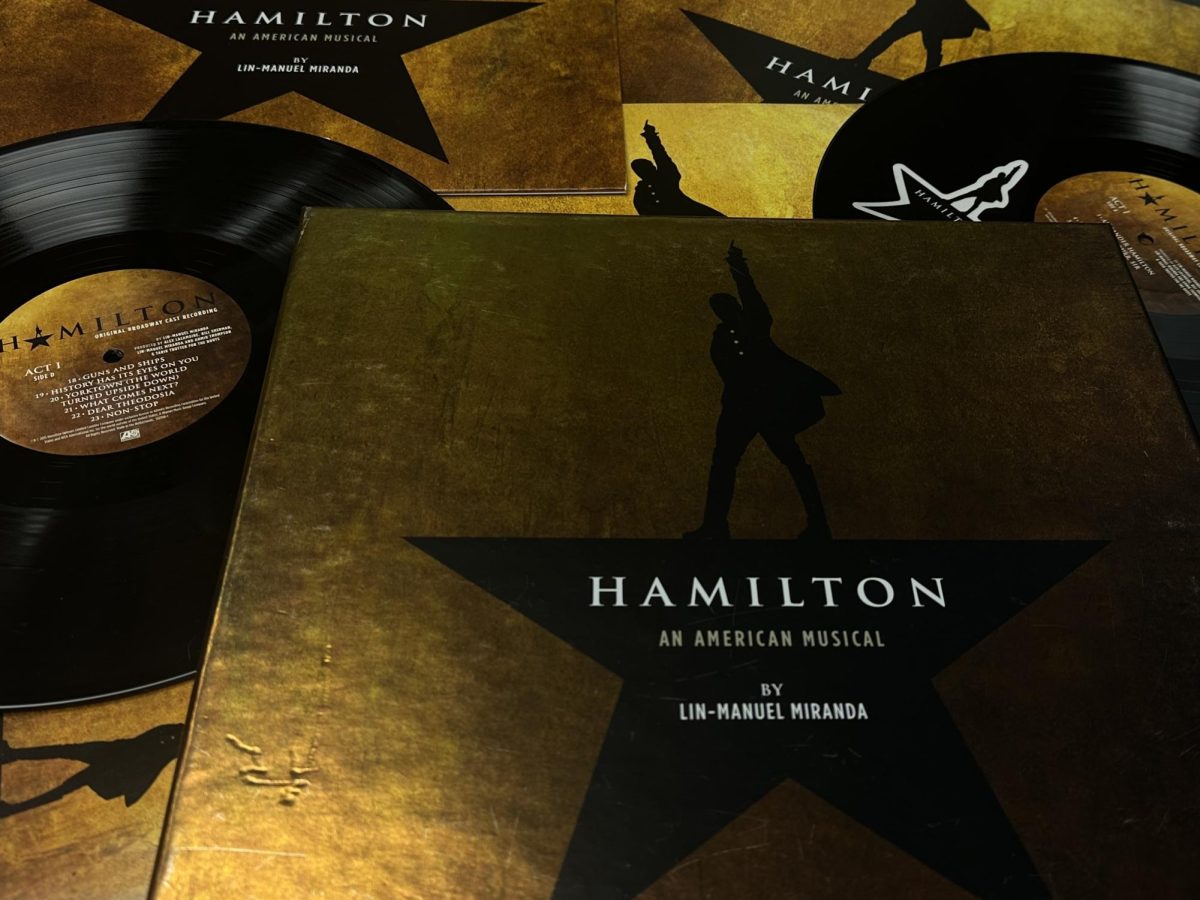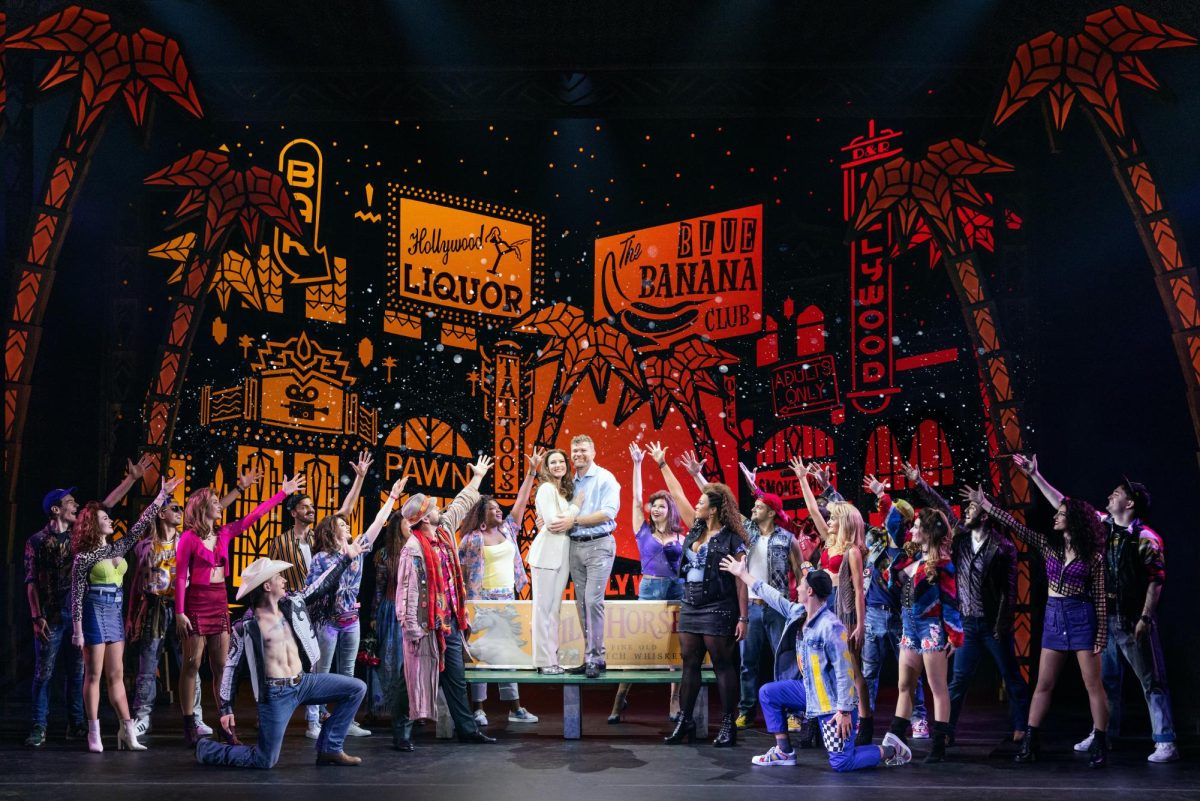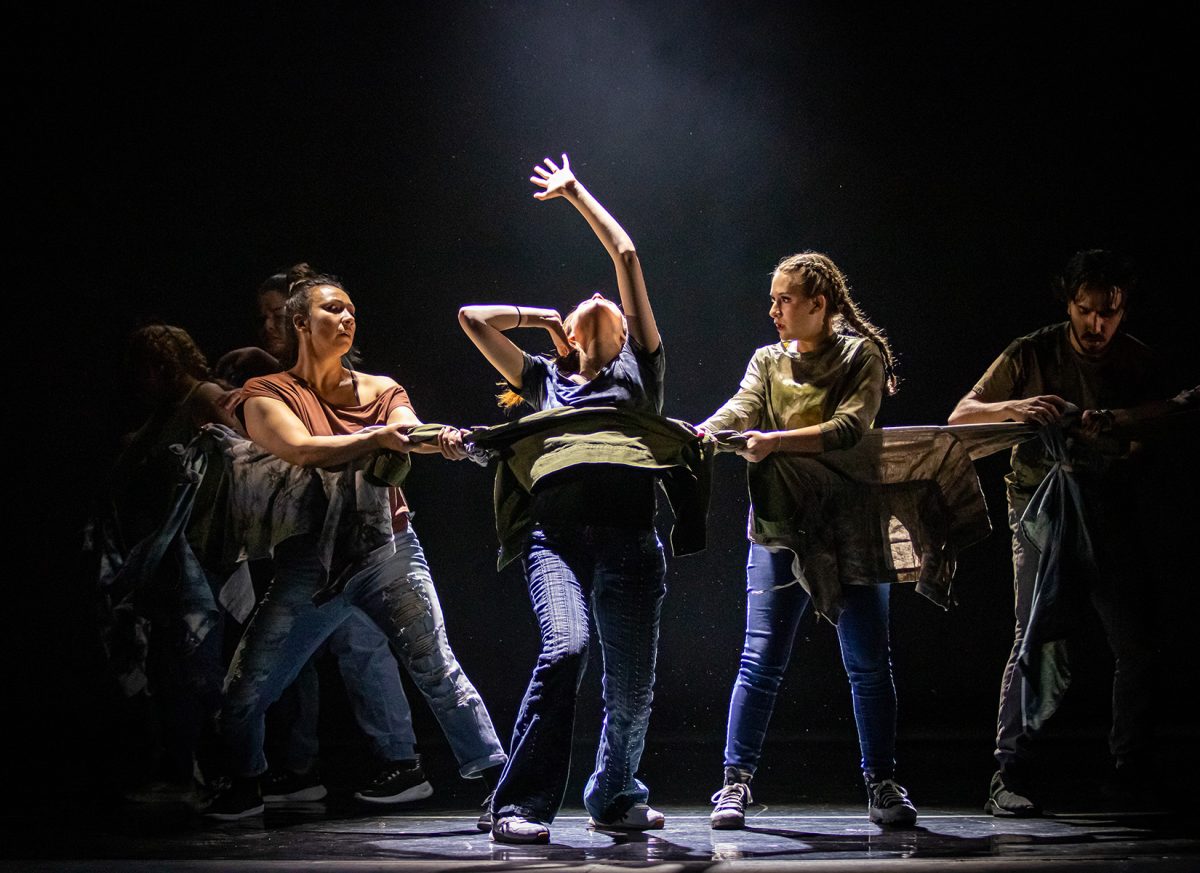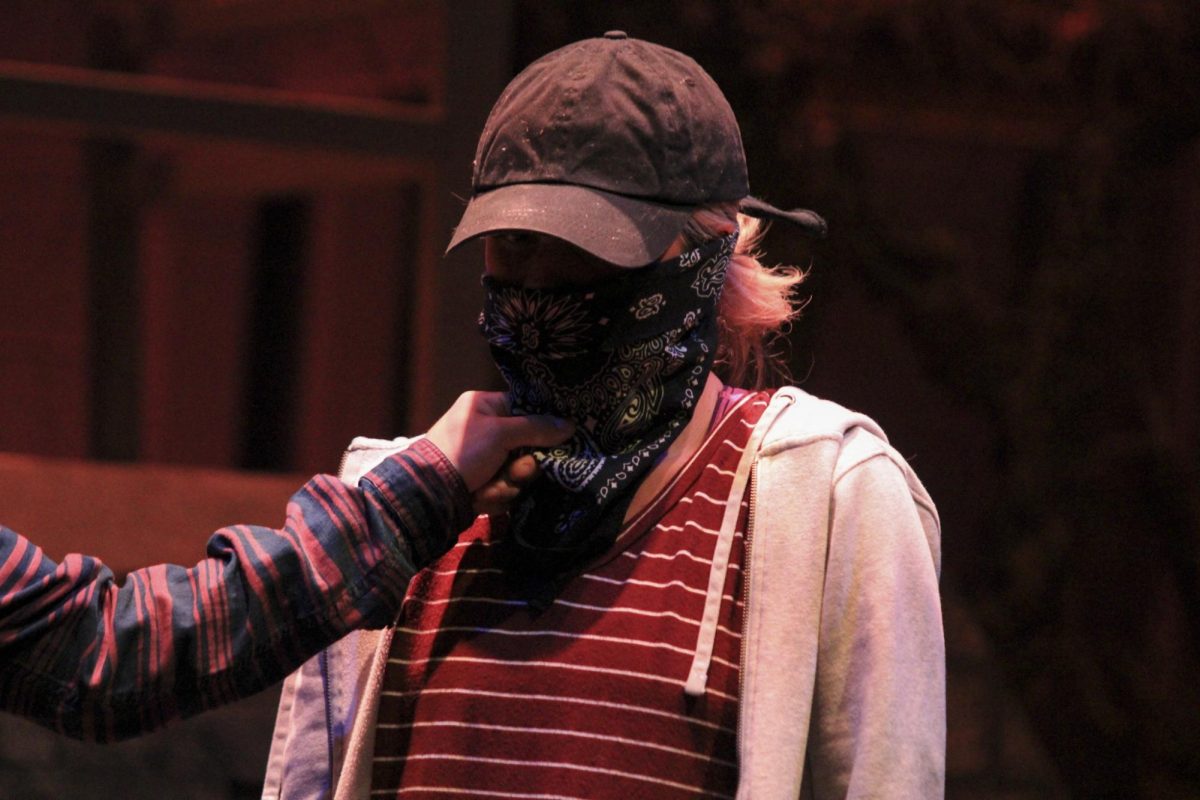El Pasoans got a taste of the afterlife when Beetlejuice the Musical paid a six-day visit to La Plaza theatre. After watching the extraordinary show, maybe “the whole being dead thing” isn’t that bad, just stay away from the netherworld.
The diehard Beetlejuice fan can breathe easy knowing no absurdity from the original films is lost, instead it’s ramped up to a 100. Alex Timber, the play’s director, let the story loose to include as many raunchy jokes, political references, and contemporary satire as it wanted. Pay attention to the puppet show, it makes for a pretty good example of the show’s comedy.
Behind the humor is a play that isn’t afraid to go all in on their stories’ visual ludicrousness, letting no stage space go unused. The creative crew goes all in on the source materials seldom cartoonishness and provides a caricatured background projected off the stage’s curtains.
When it comes to the tangible set, it’s nothing short of majestic. The house setting encapsulates Beetlejuice’s whimsical architecture. As the show proceeds, they submerge themselves in eccentric visual gags that one would only find in a Tim Burton universe. The prosthetic punch also calls for the cameo of two highly recognizable figures from the Beetlejuice universe, one of which impossibly made its way on stage.
The eye-popping props in no way distract but instead add to the cosmically accurate performances provided by the show’s actors.
Undoubtedly the show stealer is Justin Collette as Beetlejuice. It may be a no-brainer statement considering the show’s title, but the shoes that Collette steps into are no easy feat. Collette blends the character perfectly between play acting and the movie. The comedian follows the model built by Micheal Keaton in the films but manipulates it to best fit a theater setting by overexaggerating his movements, pumping in more vocal power and adding in some speed to his verbal zingers.
Will Burton and Megan McGinnis play Adam and Barbara respectively, and in roles where they’re intentionally destined to be boring, their portrayals were the exact opposite. Like Collette, Burton and McGinnis made fun of their archetypes by amplifying the stereotype of the “traditional” couple, leaning into the erotic jokes that “Mr. Juice” would like to make a reality.
At the center of the chaos is possibly the world’s most famous goth girl, Lydia Deets. Deet’s hefty emotional toll over losing her mother is diffused across the whole theater and poses the rhetorical question of how far grief can go. In Lydia’s case, that answer carries some distance.
Putting a bow on Lydia’s conflict involves conversations with both the living, the dead, and a certain demon that Beetlejuice knows too much about.
What Beetlejuice the musical provides is an alternate medium to telling Burton’s unhinged story. It isn’t the same as the movies and that’s what works, because the play isn’t forcefully delivered, but instead cleverly adapted into the model of a musical.
But beware, unlike other shows, here, there might be a “beautiful sound, of clean white shorts turning brown.”
Sebastian Perez-Navarro is a staff reporter and can be reached at [email protected]

